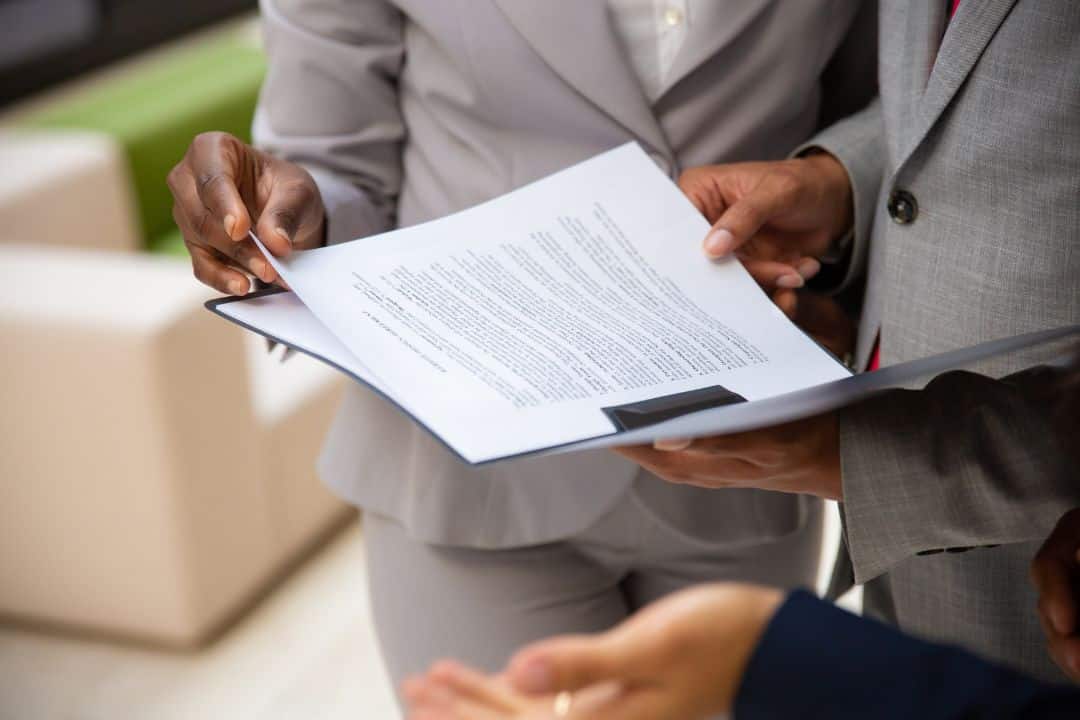
Navigating the maze of a personal injury claim can be daunting. Learn the essential steps to take to ensure your claim is handled effectively and efficiently.

Understanding Personal Injury Claims: Definition and Types
A personal injury claim is a legal process in which an individual seeks compensation for injuries suffered as a result of someone else’s negligence or wrongdoing. It involves filing a lawsuit or negotiating a settlement with the responsible party or their insurance company.
There are various types of personal injury claims, including car accidents, slip and falls, medical malpractice, and product liability. It is important to understand the specific type of claim you are filing to ensure you follow the correct legal procedures and gather the necessary evidence.
By understanding the definition and types of personal injury claims, you can better navigate the claim process and protect your rights.
Gathering Evidence: What You Need for a Strong Claim
Gathering evidence is a crucial step in building a strong personal injury claim. The more evidence you have to support your case, the better your chances of receiving fair compensation. Here are some key pieces of evidence you should gather:
1. Medical records: Obtain copies of all medical records related to your injury, including doctor’s notes, test results, and treatment plans. These records will provide documentation of your injuries and the extent of your medical expenses.
2. Accident reports: If applicable, obtain copies of any accident reports filed by the police or other relevant authorities. These reports can provide important details about the incident and help establish liability.
3. Witness statements: If there were any witnesses to the accident or incident, try to obtain their contact information and ask them to provide a written statement detailing what they saw. Witness statements can strengthen your case by providing unbiased accounts of the events.
4. Photographs or videos: Take photographs or videos of the accident scene, your injuries, and any property damage. Visual evidence can be powerful in illustrating the extent of your damages.
5. Financial records: Keep track of any expenses related to your injury, such as medical bills, rehabilitation costs, and lost wages. These records can help calculate the monetary value of your claim.
By gathering strong evidence, you can present a compelling case and increase your chances of a successful personal injury claim.
Choosing the Right Personal Injury Lawyer
Choosing the right personal injury lawyer is crucial to the success of your claim. Here are some factors to consider when selecting an attorney:
1. Experience: Look for a lawyer who specializes in personal injury law and has extensive experience handling cases similar to yours. An experienced lawyer will have the knowledge and skills to navigate the complex legal process and negotiate with insurance companies.
2. Reputation: Research the lawyer’s reputation by reading client reviews and testimonials. Look for a lawyer who is known for their professionalism, integrity, and dedication to their clients.
3. Communication: Effective communication is essential in any legal case. Choose a lawyer who is responsive, attentive, and keeps you informed about the progress of your claim.
4. Fee structure: Discuss the lawyer’s fee structure upfront to ensure it is reasonable and transparent. Many personal injury lawyers work on a contingency fee basis, meaning they only get paid if they win your case.
5. Personal connection: Trust your instincts and choose a lawyer with whom you feel comfortable. Personal injury claims can be emotionally challenging, so it is important to have a lawyer who understands and supports you throughout the process.
By carefully selecting the right personal injury lawyer, you can have confidence in your legal representation and increase your chances of a favorable outcome.
Negotiating with Insurance Companies: Tactics and Tips
Negotiating with insurance companies is a critical step in the personal injury claim process. Insurance companies are known for trying to minimize payouts, so it is important to be prepared and employ effective negotiation tactics. Here are some tips to help you negotiate a fair settlement:
1. Know your rights: Familiarize yourself with your rights as an injured party. Understand the compensation you are entitled to and the legal obligations of the insurance company.
2. Document everything: Keep detailed records of all communication with the insurance company, including phone calls, emails, and letters. Document any offers or settlement discussions.
3. Stay organized: Keep all relevant documents, such as medical records, bills, and receipts, organized and easily accessible. This will help you present a clear and comprehensive case.
4. Be patient: Negotiations can take time, so it is important to be patient and persistent. Don’t settle for less than you deserve, but also be realistic about the potential outcome.
5. Consider legal representation: If negotiations become challenging or you feel overwhelmed, consider seeking legal representation. A personal injury lawyer can advocate for your rights and negotiate on your behalf.
By employing these tactics and tips, you can navigate the negotiation process with confidence and increase your chances of a favorable settlement.
Finalizing the Claim: What to Expect in Settlements and Trials
Finalizing a personal injury claim can be done through either a settlement or a trial. Here’s what you can expect during each process:
1. Settlement: In many cases, personal injury claims are resolved through a settlement. This involves negotiating with the responsible party or their insurance company to reach an agreement on compensation. Settlements can be faster and less costly than going to trial, but the amount of compensation may be lower.
2. Trial: If a settlement cannot be reached, the case may proceed to trial. Trials involve presenting evidence, arguments, and witnesses in court. A judge or jury will then determine the outcome and the amount of compensation awarded, if any. Trials can be lengthy and more expensive, but they may result in higher compensation if successful.
Throughout the settlement or trial process, it is important to have realistic expectations and consult with your lawyer for guidance. They will provide advice on the best course of action based on the specifics of your case.
By understanding the finalization process, you can make informed decisions and work towards a resolution that is fair and satisfactory.




